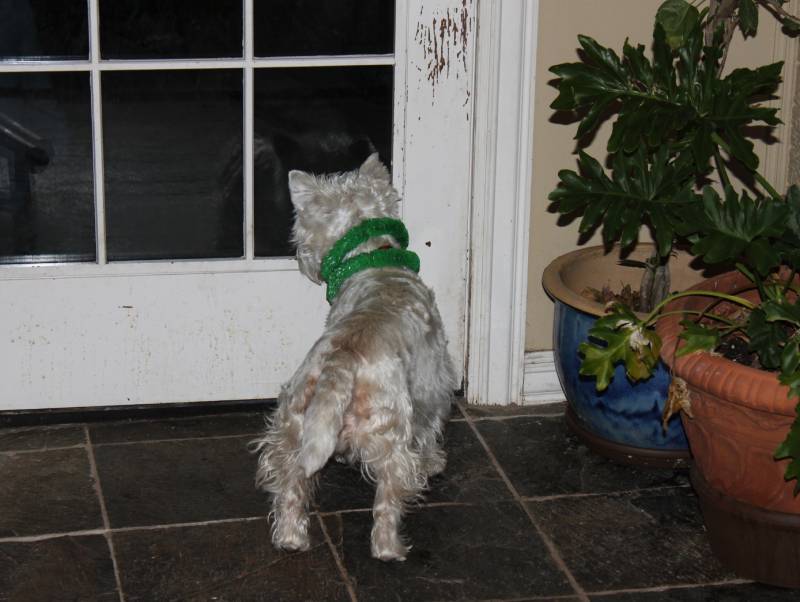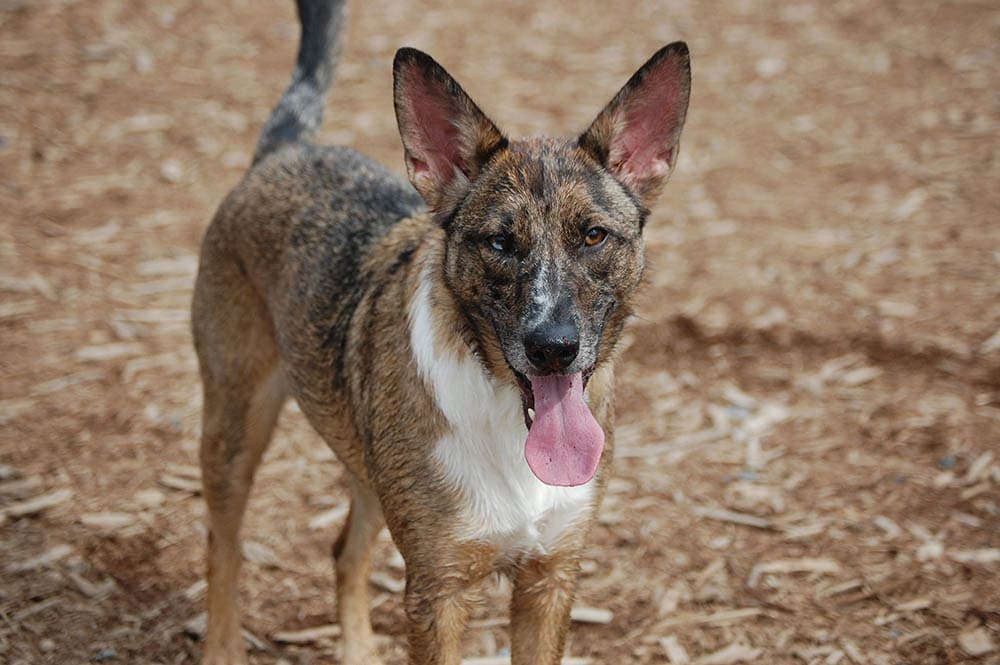My Dog Killed a Mouse! 6 Vet-Reviewed Tips on What to Do Next
Updated on
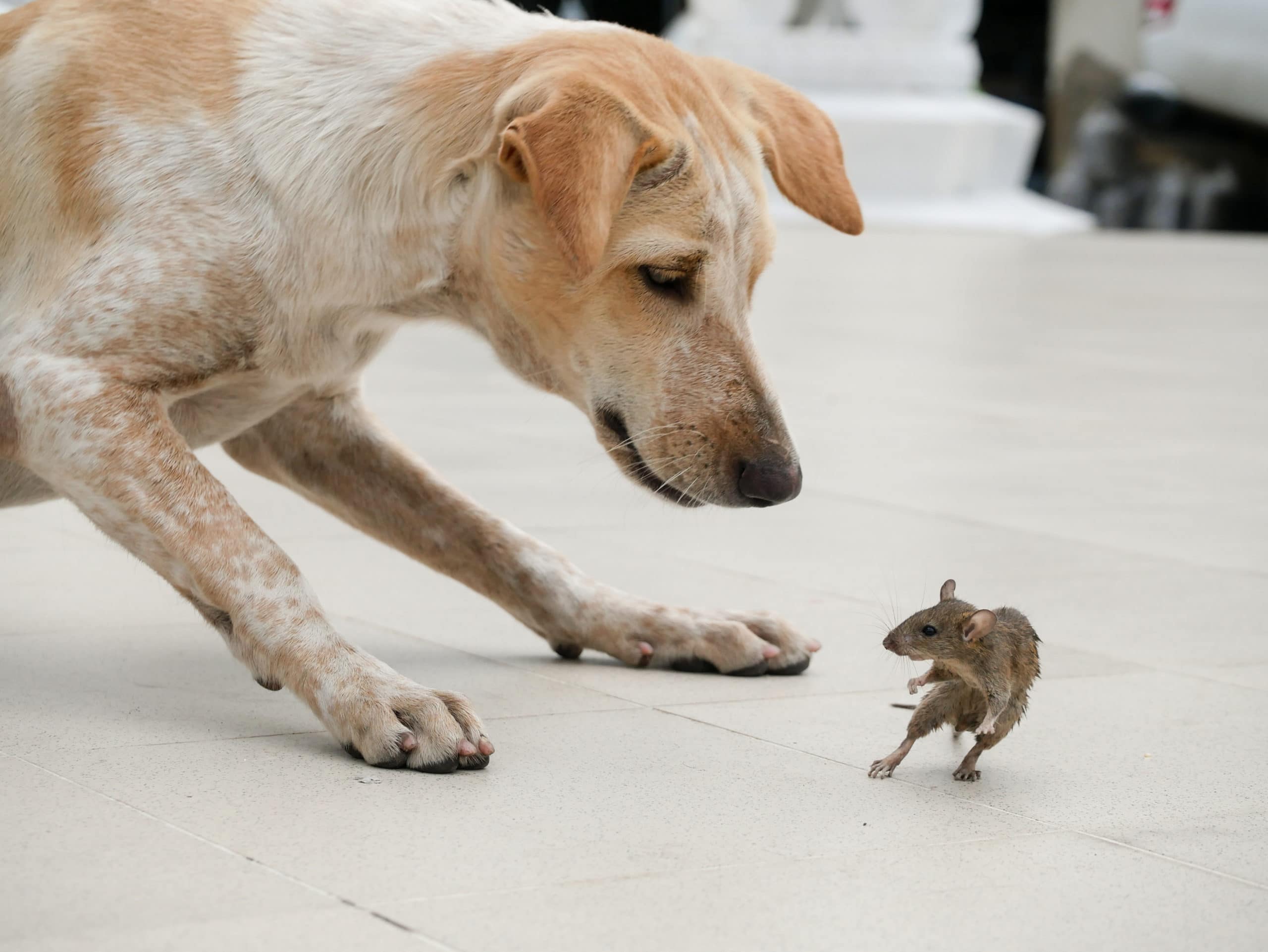
Mice can be unpleasant animals to find in your home, garage, yard, or shed, and they often cause problems wherever they are. Mice are known to get into food supplies and anything that might be considered nesting supplies, including fabrics, paper and cardboard, yarn, thread, plants, décor, and more.
Because mice have no ability to control their waste functions, they poop and pee wherever they are. What this means is that mice can contaminate everything they touch, leading to the spread of illness and making things generally unsanitary.
Many dogs enjoy hunting and killing mice, and some people even use dogs as pest control for mice and rats in barns, but there are concerns if your dog has killed a mouse. Not to mention how unsettling it can be if your dog drops a dead mouse at your feet or tries to eat them. If your dog has killed a mouse, keep reading to find out what to do.
 The 6 Tips on What to Do After Your Dog Killed a Mouse
The 6 Tips on What to Do After Your Dog Killed a Mouse
1. Keep Your Dog Away
The first thing you should do if your dog has killed a mouse and not consumed it is to put your dog away. Otherwise, your dog will curiously be investigating your every move during the next couple of steps. If your dog is a real stinker, they may even try to take the mouse and run off with it.
Ideally, your dog should be safely closed in a place that won’t allow them access to the dead mouse until things are cleaned and disinfected. Think along the lines of very secure spots, like a kennel or bathroom.

2. Glove Up
Before you handle the mouse or anything the mouse has touched, you need to put on gloves. If you don’t have access to gloves that can be thrown away or disinfected, then you can use a washcloth, towel, or even paper towels or newspaper. Whatever you use should be thrown away with the mouse if it can’t be disinfected.
Mice carry multiple diseases that can be transmitted to pets and humans, so it’s important to never handle mice with bare hands. It doesn’t matter if they’re alive or dead, either.
3. Dispose of the Mouse
Once you’ve determined how you’re going to safely handle the mouse, you should dispose of it. Do not put the mouse in a trashcan in your home, even if it’s wrapped up in bags. Bringing it into your home risks contamination, not to mention risking your dog or other pets getting into the trashcan and bringing you the same dead mouse. Dead mice should always be disposed of in an outdoor trash can that is safely away from pets and children.
It’s a good idea to wrap the mouse in layers of paper or place it inside a sealed bag. If you’re like many people, you probably have a cabinet full of plastic sacks somewhere. A couple of layers of plastic sacks are perfect for throwing out a dead mouse.
As with any contaminated object, you should always wash your hands thoroughly after handling a dead mouse, even if you didn’t directly touch it. Also, make sure to thoroughly disinfect any surfaces that the mouse may have touched.
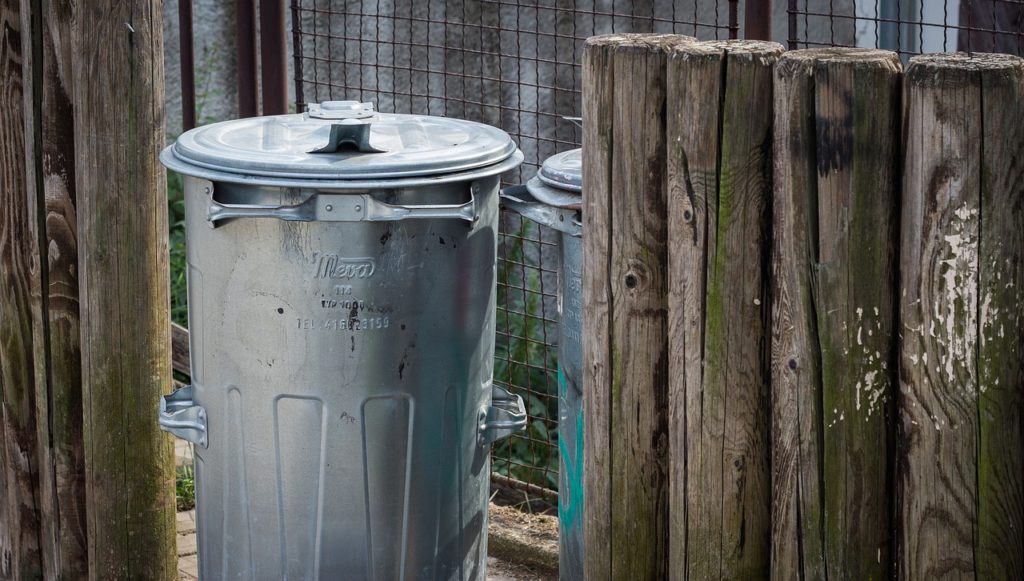
4. Keep an Eye on Your Dog
The vast majority of dogs that kill a mouse will be perfectly fine and won’t suffer any ill effects. It’s still one of the safest things you can do for your dog to keep a close eye on them for at least a few days after they’ve killed a mouse or any other wildlife.
The risk of your dog catching some type of parasite, fleas, or illness from a mouse is greatly increased if your dog consumed the mouse. If your dog has killed or eaten a mouse and they aren’t up to date on flea and tick medications or deworming, then you should talk to your dog’s vet about getting your dog updated.
5. Visit the Vet
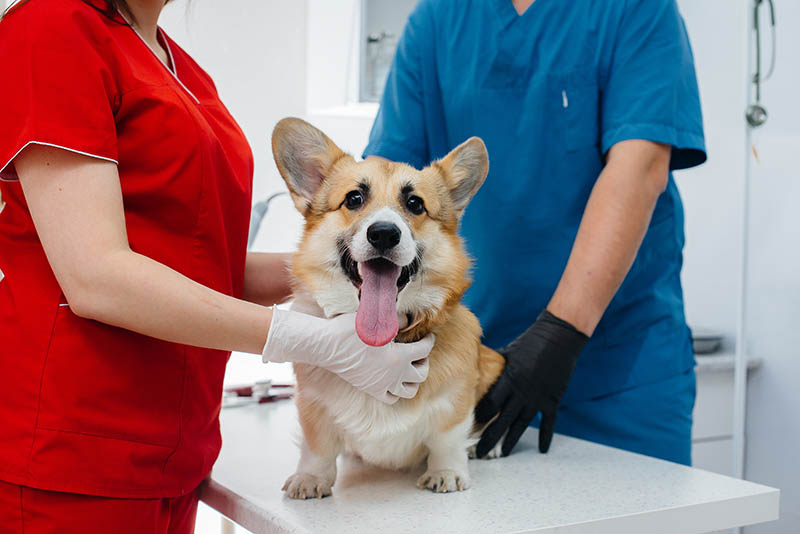
The best thing you can do if your dog has killed a mouse is to take them to the vet, or at least call the vet to get further guidance. If you know that any type of rat poison or rodenticide is out on or near your property, then you should take your dog to the vet without waiting.
If possible, take the package of poison to the vet with you. Different rodenticides have different mechanisms of action and treatments, and your vet will need to know exactly what your dog may have consumed to help them.
If you feel pretty certain that there is no risk of rodenticide ingestion, then you can probably skip the vet visit and just keep an eye on your dog. However, it’s never a bad idea to call your dog’s vet and let them know what happened. They may have guidance that is specific to your dog or your geographic location.
6. Talk to an Exterminator
If your dog killed a mouse on your property, then there are almost certainly more mice. Mice are prolific reproducers. In the wild, mice often live relatively solitary lives, but when a location that provides shelter and food is available, there are usually multiple mice living in the location. That means if your dog found a mouse in the shed or garage, then there’s probably more where that mouse came from.
Due to the risks that most rodenticides pose to domestic pets, you should talk to an exterminator to weigh your options for the elimination of the mice without risking the health and safety of your pet. It’s also important to remember that rodenticides and many traps pose a risk to children when they are accessible, so the placement of your extermination methods is important.
Avoid glue traps because they provide an unnecessarily slow and agonizing death for the mouse and they risk the safety of other animals, including reptiles, amphibians, birds, and even domestic pets.
The exterminator will likely recommend you remove any items that could be contaminated by mice or that may be providing mice shelter or food. For example, dog food kept in the garage can be accessed by mice and may need to be moved into the house until the mouse population is under control.
 Diseases Carried by Mice
Diseases Carried by Mice
- Leptospirosis: This zoonotic infection is caused by bacteria, and it is commonly spread through the urine of animals, including mice. Leptospirosis can infect humans, as well as pets, so it’s extremely important to know if it’s common in your area so you can get your dog vaccinated if needed. This infection has a long shelf life, so to speak, and can live without a host in soil and surfaces long after the mouse is dead and gone. In pets and humans, Leptospirosis can lead to kidney failure, liver failure, meningitis, and death.
- Hantavirus: Hantavirus is a collection of viral infections that are spread through multiple rodents, including at least two species of mice in the United States. New World Hantaviruses, which are the viruses that are endemic to the Americas, can lead to Hantavirus pulmonary syndrome (HPS), while Old World Hantaviruses, or those primarily in Europe and Asia, can lead to hemorrhagic fever with renal syndrome (HFRS). The most dangerous form of Hantavirus leading to HPS in the US is known as the Sin Nombre virus and is spread by the deer mouse. There is some evidence that dogs may become infected with Hantavirus, but they usually stay asymptomatic. This disease is far more dangerous for humans than dogs.
- Salmonella: While you might associate salmonella with raw chicken, it is spread through a variety of avenues. Most people who acquire salmonella get it through contaminated food, but it can also be present on surfaces. While salmonella is unpleasant, it typically isn’t serious and runs its own course in a few days. People who are immunocompromised, along with elderly people and young children, are at greater risk of developing a life-threatening salmonella infection. Dogs are more likely to be carriers of Salmonella than to become actively infected with and symptomatic of it.
- Monkeypox: It’s been in the news a lot lately, but you probably didn’t realize that mice can possibly be vectors of monkeypox, although these are usually squirrels and giant-pouched rats. This viral infection often starts with flu-like signs, but it eventually progresses to an unpleasant rash that can be itchy or painful and is commonly located in sensitive areas, like the genitals, but can also be present in multiple parts of the body. In some people, monkeypox can be extremely dangerous and may require hospitalization. Currently, there has only been one report of a dog acquiring monkeypox from a human, but dogs may be able to get monkeypox from mice and other mammals.
- Sylvatic Typhus: Also known as epidemic typhus, sylvatic typhus is a bacterial infection that does not commonly occur. If typhus sounds familiar to you, it’s because this disease killed huge swaths of people before modern medicine and hygiene practices forced it to become a rare occurrence. In the US, it is most commonly carried by flying squirrels, but other rodents may carry it because it is present in body lice, which people are also susceptible to catching. While this disease is treatable, it can cause severe symptoms and may lead to symptomatic relapses years after infection. Dogs are not at risk of catching sylvatic typhus, based on current knowledge.
- Lymphocytic Choriomeningitis: Lymphocytic choriomeningitis (LCM) is a virus whose primary host is the common house mouse. Somewhere around 5% of the house mice in the US are carriers of this disease, but they remain asymptomatic throughout their lives. Other rodents are at risk of catching this virus, including pet hamsters, gerbils, and rats. It is believed that LCM is significantly underreported and may occur more frequently than many people realize. In pregnant women, LCM has the ability to lead to congenital hydrocephalus, chorioretinitis, and developmental disabilities in the fetus. In adults, the first phase of the infection typically results in flu-like symptoms, but after a brief period of improvement, the second phase of the virus can lead to encephalitis, acute hydrocephalus, meningitis, and meningoencephalitis, all of which can lead to permanent disability and death.
 Conclusion
Conclusion
While the risk of any negative effects is low if your dog kills a mouse, the risk is still present. The risks extend beyond your dog to you and pets within the household, so it’s important to take all necessary precautions to keep everyone safe.
There are multiple diseases that can be carried by mice, and those listed above are only a handful. There are serious risks associated with contact with mice and their waste, so it’s extremely important that you avoid handling wild mice and ensure you thoroughly disinfect any surfaces the mice have touched.
Featured Image Credit: Physics joe, Shutterstock

 The 6 Tips on What to Do After Your Dog Killed a Mouse
The 6 Tips on What to Do After Your Dog Killed a Mouse Diseases Carried by Mice
Diseases Carried by Mice